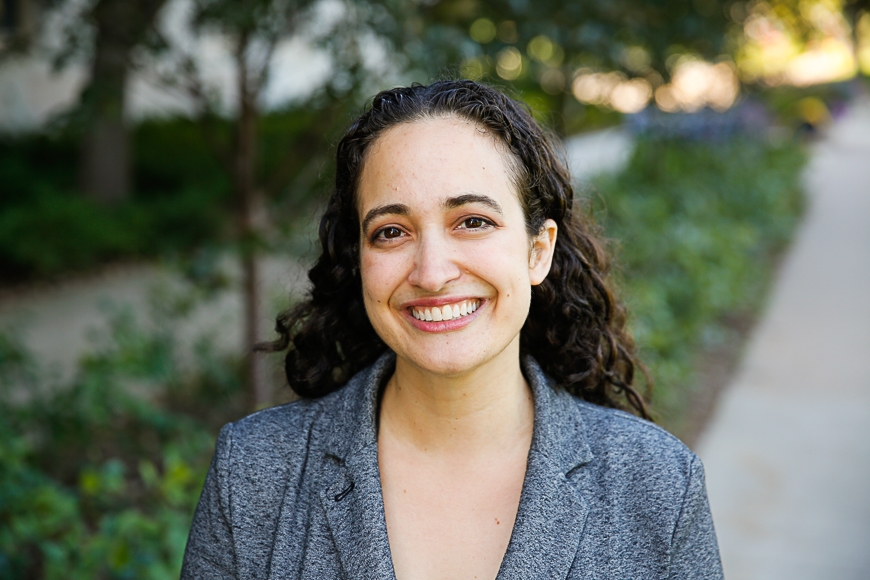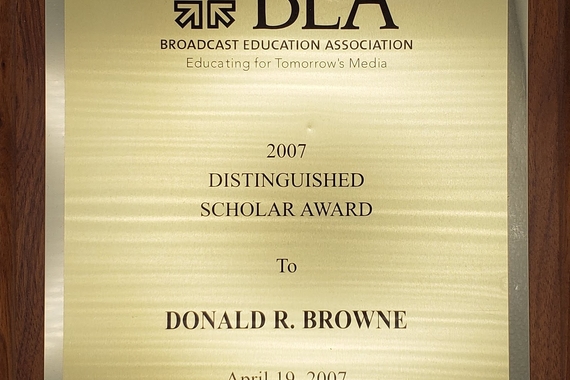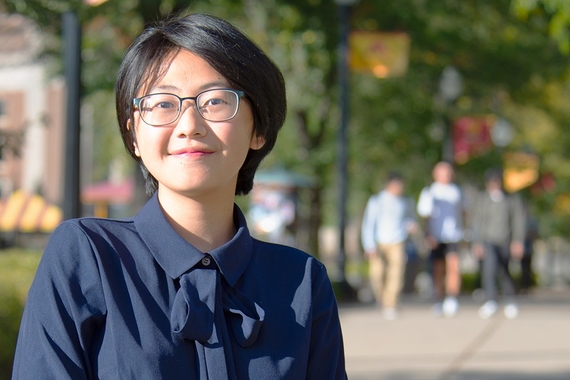Word Choice: The Rhetoric of Reproductive Rights
The Department of Communication Studies recently hired Dr. Emily Winderman, who researches the rhetoric of reproductive healthcare, including birth control, family planning, abortion care, and birthing practices.
With an MA in communication studies from Eastern Michigan University and a PhD from the University of Georgia, Winderman’s interest in the interpretation of women’s reproductive health care and rights was piqued when she was a grad student at Eastern Michigan.
“I was really intrigued by [instances] when friends of mine and myself needed reproductive health care and abortion care. Our experiences were inconsistent with the public messages that tried to make us feel bad about having gotten [care]. But it was something that neither my friends nor I really felt guilty about outside of the messages telling us that we needed to feel guilty about them.”
Curious about these contrasting messages, Winderman began to apply her passion for reproductive rights to her studies in rhetoric: the stories behind everyday issues that shape how we think about them.
Negotiating Anger, Fear, and Disgust
A self-described “feminist rhetorical critic and theorist,” Winderman is interested in the intersection of women's reproductive health, reproductive justice, and public emotion. Rather than heavily emphasizing policy and quantifying trends in the areas of abortion and other reproductive issues, Winderman’s rhetorical research focuses on the feelings and words that shape our society’s attitudes toward reproductive healthcare.
“I'm really interested in how issues related to reproductive health and justice are negotiated through and with public emotionality,” she explains. “So anger, fear, disgust—all of those are really profoundly present in any and all debate surrounding women's access to reproductive care.”
Winderman is currently documenting her research in a book that traces the rhetorical history of the phrase “back-alley abortion” and how it affects attitudes toward abortion.
“A rhetorical history is one where we look at the history of publicly circulating stories,” Winderman describes. “I am less interested in illuminating how many illegal abortions took place in dubious circumstances than I am in understanding the ways that activists framed these stories for the various goals of their advocacy.”
The power of these stories is what drives Winderman’s research and what gets her excited about studying reproductive healthcare from a rhetorical perspective.
Through her research, Winderman has found that the stories behind abortion propel both sides of the abortion rights debate. While the language often used to talk about “back-alley abortions” shines a negative light on the procedure, similar rhetoric has also worked in the abortion rights movement’s favor. Winderman notes, “The stories that were told allowed the second-wave abortion rights movement to really cohere but often to the detriment of non-white voices who were quite central to reproductive advocacy.”
Contributing to a Rhetorical Focus
Winderman is one of three new department hires with research specializations in rhetoric, contributing to a new generation of rhetorical scholars. In the two classes she has taught so far, Introduction to Rhetorical Criticism and Famous Speeches, she hopes to bring rhetoric to the forefront of how social issues are considered, as well as make a positive impact on her students and their education.
“If you don’t care about your students, you’re going to miss out on a lot of self-growth, and then you're not going to be able to help them.”
This story was written by an undergraduate student in CLAgency. Meet the team.



